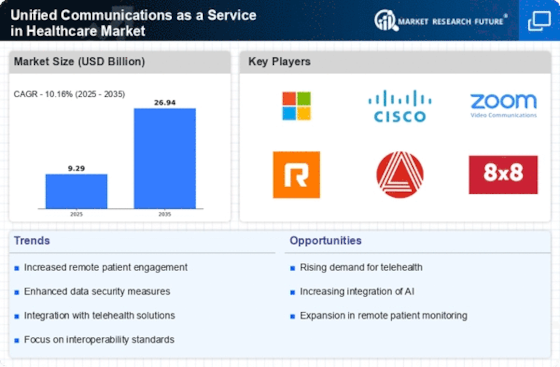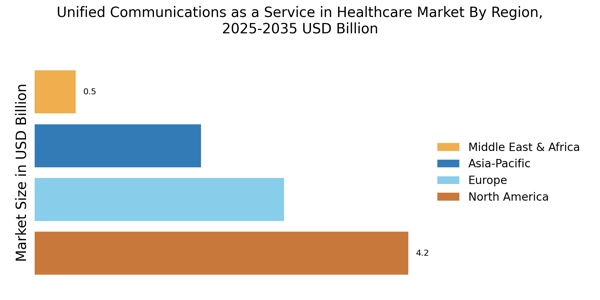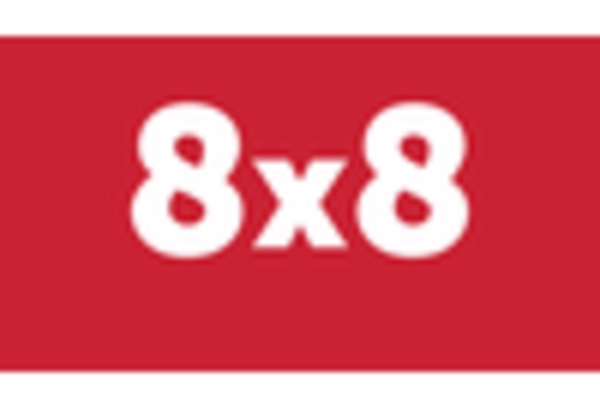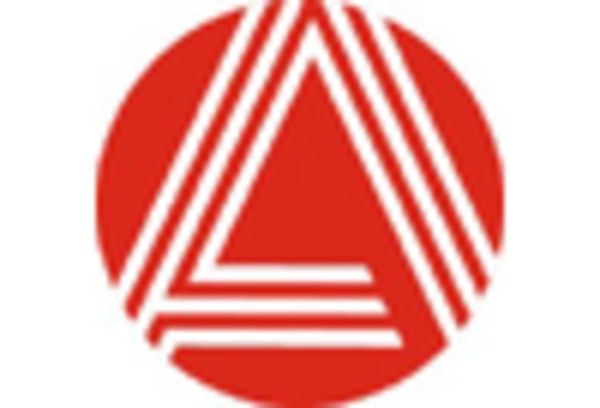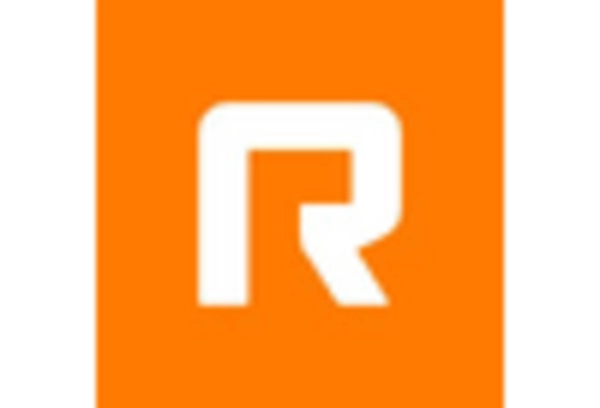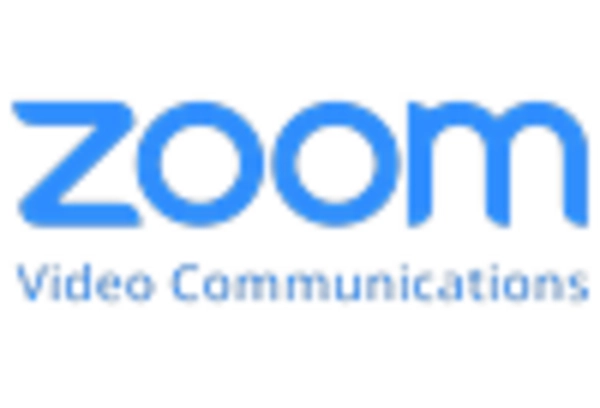Growing Need for Interoperability
The growing need for interoperability is a critical driver in the Unified Communications as a Service in Healthcare Market. As healthcare systems become more complex, the ability to share information seamlessly across different platforms is essential for coordinated care. Unified Communications as a Service solutions facilitate interoperability by integrating various communication tools and applications, enabling healthcare providers to collaborate effectively. Recent surveys indicate that over 70% of healthcare organizations recognize interoperability as a key factor in improving patient outcomes. By enhancing communication and information sharing, these solutions contribute to a more integrated healthcare ecosystem, ultimately benefiting patients and providers alike.
Increased Focus on Cost Efficiency
The heightened focus on cost efficiency is a significant driver in the Unified Communications as a Service in Healthcare Market. Healthcare organizations are under constant pressure to reduce operational costs while maintaining high-quality care. Unified Communications as a Service solutions offer a cost-effective alternative to traditional communication systems, enabling organizations to consolidate their communication infrastructure. By leveraging cloud-based services, healthcare providers can minimize capital expenditures and reduce maintenance costs. Recent studies indicate that organizations adopting these solutions can achieve savings of up to 30% in communication-related expenses, thereby allowing them to allocate resources more effectively towards patient care.
Regulatory Compliance and Data Security
Regulatory compliance and data security are paramount concerns in the Unified Communications as a Service in Healthcare Market. With the increasing volume of sensitive patient data being transmitted, healthcare organizations must ensure that their communication systems adhere to stringent regulations such as HIPAA. Unified Communications as a Service solutions are designed with robust security features, including encryption and access controls, to safeguard patient information. As regulatory scrutiny intensifies, organizations that prioritize compliance and data security are likely to gain a competitive advantage. This focus on secure communication not only protects patient data but also fosters trust between patients and healthcare providers.
Advancements in Communication Technologies
Advancements in communication technologies are transforming the landscape of the Unified Communications as a Service in Healthcare Market. Innovations such as artificial intelligence, machine learning, and cloud computing are enabling healthcare organizations to streamline operations and enhance collaboration. The adoption of these technologies is expected to increase efficiency, reduce costs, and improve patient care. For instance, the integration of AI-driven chatbots in communication platforms can facilitate instant responses to patient inquiries, thereby enhancing the overall patient experience. As these technologies continue to evolve, they are likely to play a crucial role in shaping the future of healthcare communication.
Rising Demand for Remote Patient Monitoring
The increasing demand for remote patient monitoring is a pivotal driver in the Unified Communications as a Service in Healthcare Market. As healthcare providers seek to enhance patient engagement and improve outcomes, the integration of remote monitoring solutions becomes essential. According to recent data, the remote patient monitoring market is projected to grow significantly, with estimates suggesting a compound annual growth rate of over 25% in the coming years. This trend indicates a shift towards proactive healthcare management, where Unified Communications as a Service solutions facilitate seamless communication between patients and providers, ensuring timely interventions and personalized care.


